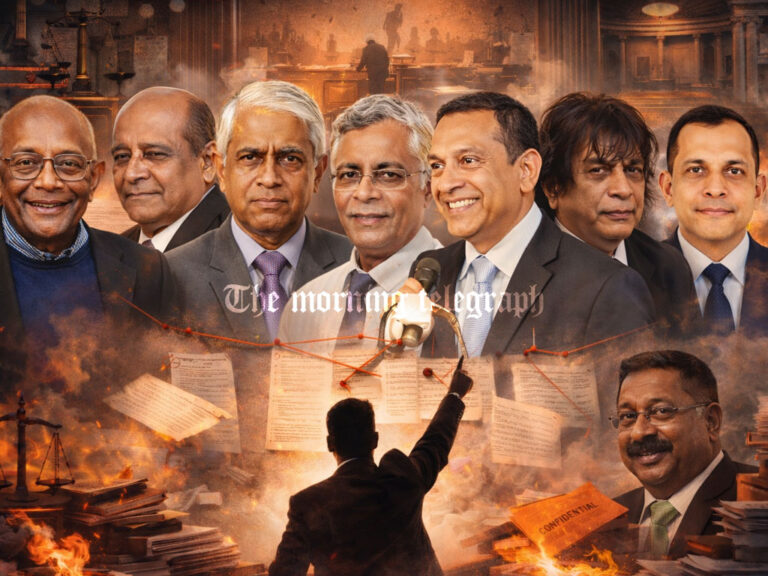
A fresh controversy has emerged over Sri Lanka’s vehicle number plate procurement process, with internal sources at the Department of Motor Transport (DMT) alleging that the latest government tender has deliberately removed critical security features previously embedded in license plates. The omission, according to these sources, could pose a significant threat to national security.
Under the current number plate system, several covert and overt security markers were embedded to prevent counterfeiting and ensure traceability. Among them were laser watermark rows featuring the national lion symbol, as well as the abbreviation “D.M.T.”—appearing in both small and large print. These identifiers were considered vital by security experts and DMT insiders. However, the new tender has reportedly eliminated these safeguards.
Sources claim that this change was made to accommodate the preferences of a particular supplier. While no official explanation has been offered on the record, some employees allege that vested interests and political interference continue to influence one of the country’s most lucrative state tenders.
The tender for vehicle number plates has long been surrounded by allegations of corruption. Whistleblowers within the department allege that politicians and former top officials who once oversaw the process still receive commissions from deals linked to number plate production. These claims have only intensified following news that security features were removed not due to innovation or policy shifts—but cost-cutting, allegedly to protect supplier margins and kickbacks.
Responding to inquiries made by Lankadeepa, a senior official at the Department of Motor Transport confirmed that the decision to call the new tender and remove specific security features lies with the Ministry of Transport and Highways, Ports and Civil Aviation. The official admitted that certain features were removed due to cost implications, arguing that the lack of a real-time system to verify fake plates on the road makes these features redundant.
However, many within the department sharply disagree. “If there’s no verification system in place, that’s all the more reason to maintain physical and visual identifiers on number plates,” one source noted. “Without them, it’s open season for counterfeiters and criminal use.”
As Sri Lanka attempts to portray itself as a modernizing nation on the global stage, concerns over weakened public procurement standards, corruption, and national security vulnerabilities persist. Critics argue that at a time when the country should be adopting stronger security protocols in line with international standards, it is instead rolling back safeguards—under the guise of financial prudence.
The question now remains whether transparency, accountability, and public safety will prevail—or if this is yet another example of critical state infrastructure falling prey to private profiteering.




